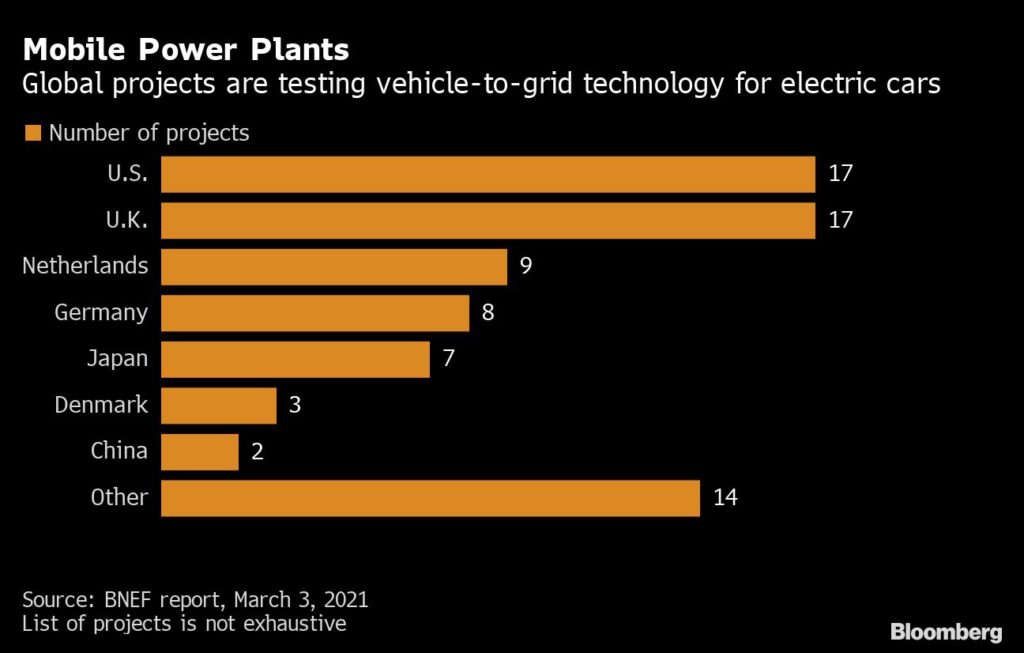
Electric vehicles that allow power grids to tap their batteries when parked will be key for nations like Japan to add more clean energy, according to a Nobel Prize-winning developer of lithium-ion technology.
Rising adoption of battery-powered transport and the further development of vehicle-to-grid, or V2G, systems — which allow the two-way flow of electricity — could offer a potentially better option to store renewable energy than expensive, dedicated battery facilities, Akira Yoshino said in an interview.
Japan, which has been criticized over the slow pace of its transition away from fossil fuels, is constrained by limited space for solar power, onshore wind farms and battery storage hubs. Prime Minister Fumio Kishida’s government is seeking to cut greenhouse emissions by 46% from 2013 levels by 2030.
“While power storage systems will be definitely needed to spread renewable energy, it’s not cost effective to create a new storage system for that purpose,” said Yoshino, an honorary fellow at battery component manufacturer Asahi Kasei Corp. “We can utilize electric vehicles as a power storage system while they don’t operate.”
Japan is among countries testing out the capabilities of the technology, and more than half of current global pilots involve Nissan Motor Corp.’s Leaf cars, among the few major models that currently offer two-way charging.

The global fleet of passenger and commercial electric vehicles topped 10 million last year and should be at least 550 million by 2040, according to BloombergNEF. That will create a huge opportunity for V2G technology, even if only a small proportion of models are fitted with bi-directional charging and able to export energy to homes or grids.
“If EVs becomes widely used, Japan will definitely go in that direction,” Yoshino said. The 73 year-old Japanese scientist was awarded the Nobel Prize in Chemistry in 2019 together with two others for work on development of the modern lithium-ion battery.
Japan should be able to tap a meaningful amount of power storage capacity when the country’s EV fleet reaches 5 million, he said. The country’s EV adoption is lagging behind other nations and annual sales won’t exceed 200,000 before 2025, BNEF said in a sector outlook in June.
Elsewhere, startups such as Form Energy Inc. are working on improvements that aim to dramatically lower the costs of dedicated, long duration battery storage systems.
Grid-scale hubs are being deployed in increasing numbers, led by projects in California, Australia and China. France-based Neoen SA last week brought a new 300 megawatt capacity facility into operation near Geelong in southeastern Australia.
